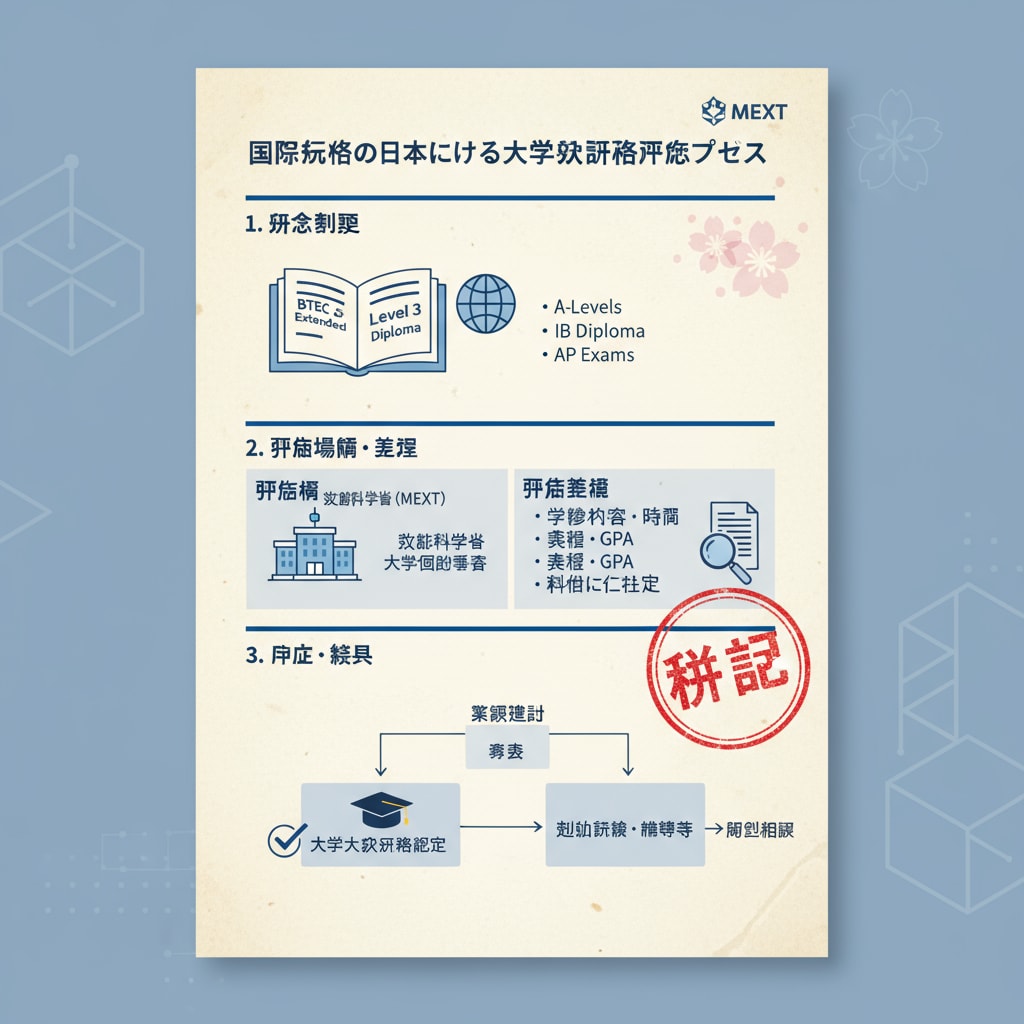For students holding British BTEC qualifications and eyeing Japanese universities for further education, understanding the application process is crucial. The combination of Japan universities, A-levels, BTEC, and overseas study applications brings a unique set of challenges and opportunities. Let’s explore how BTEC holders can navigate the path to Japanese higher education.

Understanding BTEC and Its Standing in Japan
BTEC (Business and Technology Education Council) Level 3 qualifications are recognized in the UK as a significant step towards higher education. However, when it comes to Japan, the situation is a bit more complex. Japanese universities have their own criteria for evaluating international qualifications. BTEC Level 3 is often compared to A-levels in the UK system. While A-levels are more commonly known and accepted in Japan, BTEC qualifications can still be considered. For example, some Japanese institutions may require an assessment of the BTEC coursework and grades to determine its equivalence to their entry requirements. BTEC on Wikipedia
The Equivalence Assessment Process
The first step for BTEC holders is to have their qualifications evaluated for equivalence. Japanese universities typically have an international admissions office that handles such assessments. They will look at the subjects studied, the level of difficulty, and the overall performance in the BTEC program. In addition, they may require official transcripts and certificates from the awarding body. This assessment process can take some time, so it’s advisable to start early. Some universities may also ask for additional documentation, such as letters of recommendation or a personal statement. Educational Credential on Britannica

Application Strategies for BTEC Holders
Once the equivalence is established, the next step is to focus on the application process. BTEC holders should research the specific requirements of each Japanese university they are interested in. Some universities may require standardized test scores, such as the TOEFL or IELTS for English proficiency. In addition, they may need to submit a study plan outlining their academic goals in Japan. It’s also important to highlight any relevant skills or experiences gained through the BTEC program, such as practical work in a related field. This can set applicants apart from others. For example, if a student has completed a BTEC in a technical subject and can demonstrate hands-on skills, it can be a strong selling point.
Alternative Paths to Japanese Universities
If direct entry to a Japanese university with a BTEC qualification proves challenging, there are alternative paths. One option is to enroll in a preparatory program. These programs are designed to help international students improve their language skills and academic knowledge to meet the requirements of Japanese universities. Another alternative is to consider community colleges or vocational schools in Japan. These institutions may have more flexible entry requirements and can provide a stepping stone to a full-fledged university degree. For instance, a student can complete a shorter course at a community college and then transfer to a university.
Readability guidance: As we’ve seen, the journey from BTEC to a Japanese university is filled with various aspects to consider. From understanding the standing of BTEC in Japan to exploring alternative paths, students need to be well-prepared. By following the strategies outlined, BTEC holders can increase their chances of a successful overseas study application to Japanese universities.


